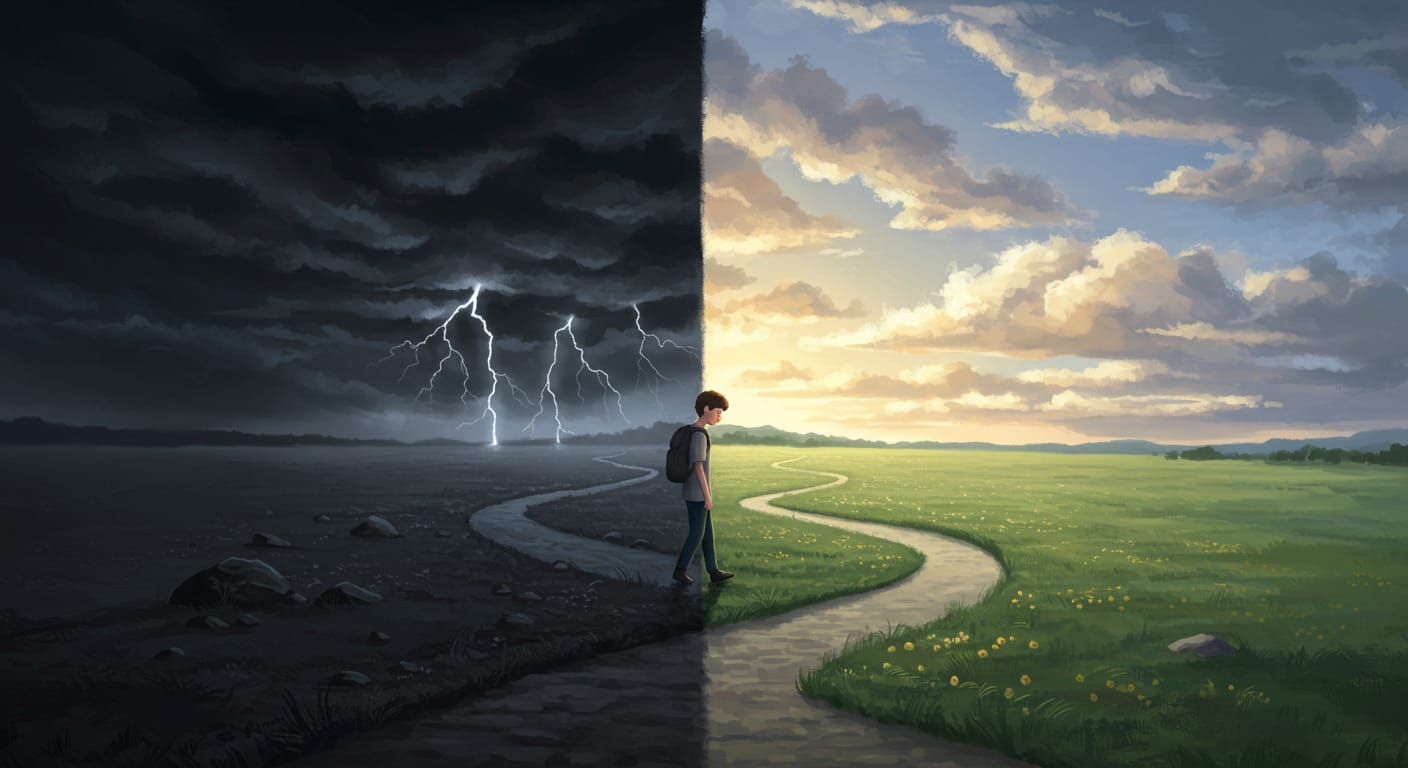Yes—Depression Is Real
When it comes to teens, many of us have heard or even said something like:
“It’s just a phase. They’ll grow out of it.”
But that mindset—though often well-intentioned—can be harmful. It may stem from the belief that teenagers are naturally moody or dramatic. But that doesn’t mean what they’re feeling isn’t real. Depression isn’t an act. And no, they’re not pretending.
What About Teen Phases?
Yes, teens go through a lot of internal and external changes. Some mood swings or emotional intensity may be part of adolescence. But that doesn’t make depression any less real or significant. As Taylor Swift wisely said:
“This is a new year. A new beginning. And things will change.”
Some teens do “grow out” of depression. Research shows that for many, episodes may only last a few months. This can be due to brain development, growing emotional intelligence, or better coping skills.
But that doesn’t mean we should minimize depression just because it might not last forever. Even short-term depression can seriously affect sleep, diet, school performance—and in severe cases, lead to thoughts of suicide.
Does Depression Get Worse or Better with Age?
The truth is: it depends.
-
Some people recover as they mature and develop better social and emotional tools.
-
Others continue to struggle, especially without proper support or treatment.
-
For a few, depression can even worsen with age due to life stressors, trauma, or untreated mental illness.
That’s why early treatment matters. Left untreated, depression can deepen and lead to longer-term challenges.
Why It’s Easy to Miss in Teens
Many teens hide their emotions well. Parents might see anger, withdrawal, or poor behavior—and think it’s just defiance. But those may be signs of underlying sadness, hopelessness, or mental fatigue.
That’s why it’s so important to pay attention. Watch for:
-
Sudden mood shifts
-
Changes in sleep or eating
-
Loss of interest in activities
-
Expressions of guilt or worthlessness
-
Isolation from friends or family
The Recovery Phase: Yes, There Is Hope
No matter how long depression lasts, it is real, and treatable. Teens benefit greatly from:
-
Counseling
-
Talk therapy (CBT, DBT)
-
Support groups
-
Psychiatric care when medication is appropriate
-
Unwavering support from parents and caregivers
What they don’t need is to be dismissed, shamed, or told to “snap out of it.”
What Can Parents and Guardians Do?
You have a powerful role to play. Your belief in your child’s experience—and your willingness to get them help—can shape their journey.
-
Let them know you’re there, even if they push you away.
-
Be open, calm, and nonjudgmental.
-
Encourage mental health treatment.
-
Celebrate small wins with them.
-
Create a stable, safe, and loving home environment.
So, Is Depression Real?
Yes.
It’s not “just a phase.”
It may improve with age—or it may worsen.
But either way, it should never be ignored.
Support, treatment, and compassion can make all the difference—especially when it comes from someone they trust.
“You don’t have to see the whole staircase, just take the first step.” —Martin Luther King Jr.


